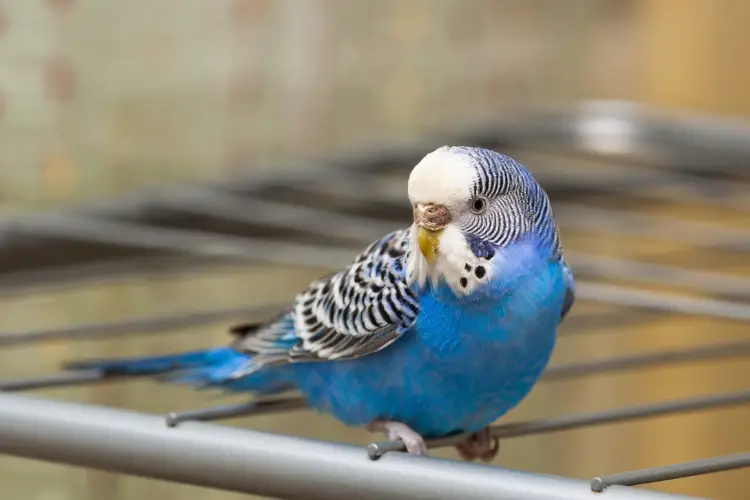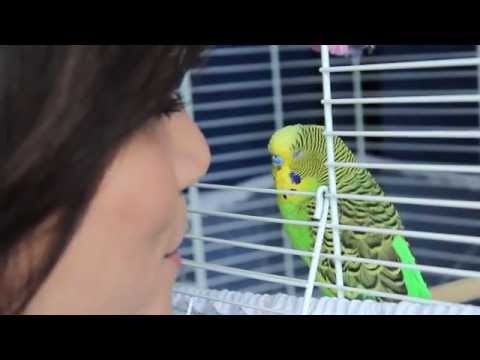Unlike humans, budgies and other birds don’t have vocal cords for enhanced speech systems. However, these pet birds can make different sounds, including chirping, chattering, singing, and whistling.
But can budgies talk, and do they mimic human speeches? Yes, budgies can talk and mimic various human speeches because they have a vocal organ called the syrinx. You can teach your parakeets to say different words and phrases. However, training your birds to talk can take two weeks to two months or more, depending on their age, gender, and environment.
Now you might wonder, do all parakeets talk, and if yes, what words can they say? Read on to find out this and much more.
Do Budgies Talk? Do Female Budgies Talk?
Yes, budgies, referred to as budgerigars or parakeets, can talk by mimicking human speech. These parrot species can speak with each other and their owner. For some words, they can learn on their own from human conversations, and for others, you have to teach them. Some of the frequent terms you will hear them say include:
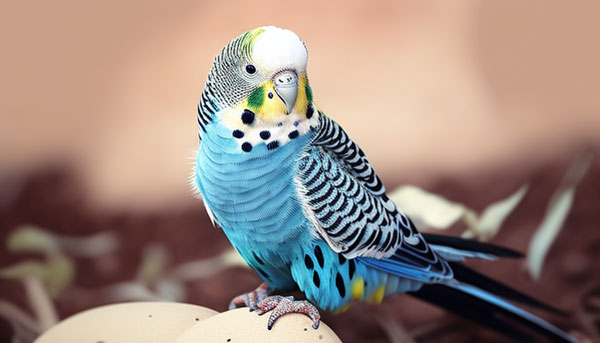
- Greetings like hello
- Names of things
- Common phrases like time for food
- Night-night
- Bye-bye
But how do budgies talk since they lack vocal cords like humans? These pet birds have a muscular vocal organ known as the syrinx located at the base of the trachea. The organ is between the lower trachea and the bronchus.
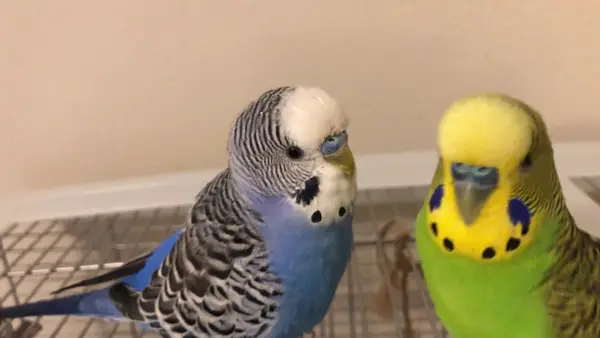
Budgie talks by directing airflow to their syrinx. Consequently, this forces the right and left muscles of their vocal organ to vibrate to make a wide range of sounds. However, your budgies can use different parts of their vocal organ to make various sounds, sometimes even simultaneously.
So, do female budgies talk? And do all parakeets talk? The answer is yes. Both female and male parakeets can speak since they have the same vocal organs, the syrinx. However, female budgies are not as vocal as their male counterparts. This is because, in the wild, male budgies do a lot of talking to attract females during the courting stage.
How To Teach A Budgie To Talk Like Humans?
Since budgies can talk, how do you teach them to speak like humans? Here is a step-by-step guide to help you and a video of how to train your birds to talk:
Step 1: Bond with your parakeet
You cannot teach your pet budgie how to speak if it is scared of you. So, you must first develop a good bond with your pet bird by spending quality time with it.
Step 2: Begin with a single word
Start by teaching your budgie to say one word only. You can teach it to say words like a budgie, goodbye, and hi. Make sure to repeat each word a few times and slowly until your bird starts saying the same.
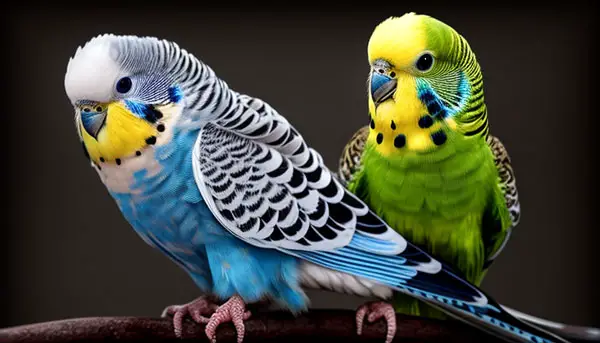
Step 3: Say simple phrases or sentences
Once your budgie has mastered saying a few individual words, you can start teaching it short phrases. For instance, you can train your bird to say, I love you, good day, and good morning.
You could also teach your budgie phrases associated with specific actions. Like when feeding it, you can say, “here is your food,” and ensure to repeat the sentence many times.
Step 4: Respond to your budgie
If your parakeet tries to speak to you, respond and repeat the exact words. And when your bird tries to express itself through actions, respond with words.
How Long Does It Take A Budgie To Talk?
The truth is, budgie talking can take several weeks, months, or more despite their excellent vocal production mechanism. In other words, there is no fixed time when budgies can talk. The time it takes to for your budgie to learn to speak varies based on factors like:
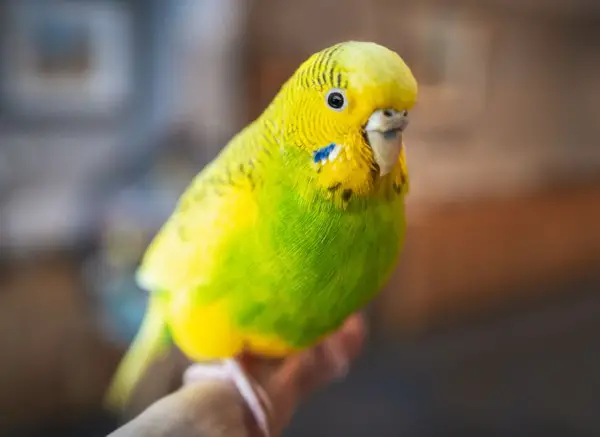
Also read: Are Budgies Color Blind?
Age of the bird
Older budgies take longer to learn how to speak than their younger counterparts. As they grow older, your bird’s brain loses its capacity to grasp new data.
Willingness to learn
These pet birds have different personalities. As such, some budgies may be more willing to learn to speak than others, making teaching challenging.
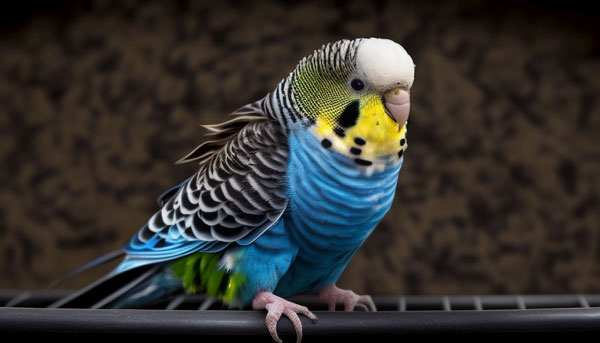
Gender type
Male budgies are considered more vocal than females. Therefore, they may learn to talk faster.
Environment
If you keep your budgie in a noisy environment, your bird will likely have difficulty picking up any words. Therefore, it will take longer to learn how to speak.
What Words Can Budgies Say?
Budgies have one of the most extensive vocabularies among the different parrot species. They can say over 100 words and up to a thousand. These pet birds can say various greetings like hello, hey, hi, good morning, night-night, bye-bye, rise and shine, ahoy, and howdy.
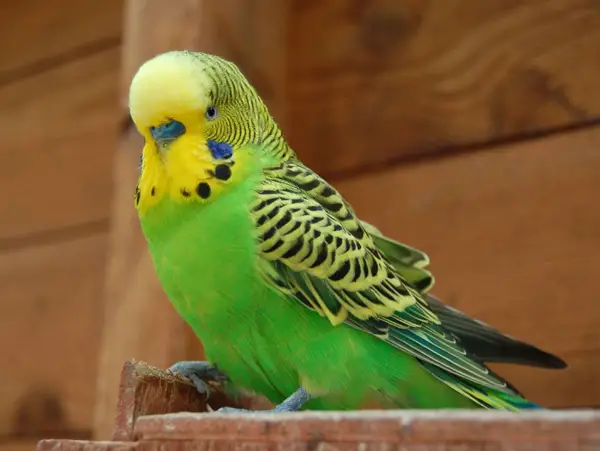
In addition to the greetings, budgies can name things like different types of foods, your name, and other pet’s names. These birds will also say conversational phrases, including yes, no, how are you, and what’s up. Other common words your budgies can say include:
- Pick me up
- Thirsty and hungry
- Don’t like
- Its name
- Love you
- Gimme food
Common Budgie Sounds
Although budgies can talk, they also make various sounds to express their feelings. Some of the familiar sounds these pet birds produce via their vocal organs include:
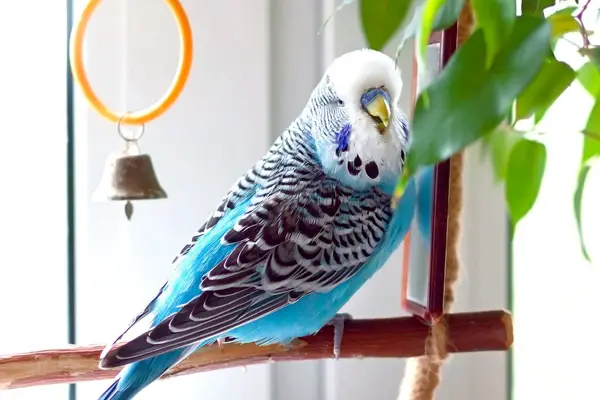
1. Chirping
Your budgies will make sweet and bright chirps when feeling happy, or they like the music you are playing. Sometimes, your birds may make unhappy chirps that are loud because they want your attention, food, or water.
2. Whistling
Like chirping, budgies will make whistling noises because they feel happy, content, and relaxed.
3. Squawking
Parakeets will squawk if frightened by something. You will also hear this noise when your bird is stressed, lonely, bored, or annoyed about something.
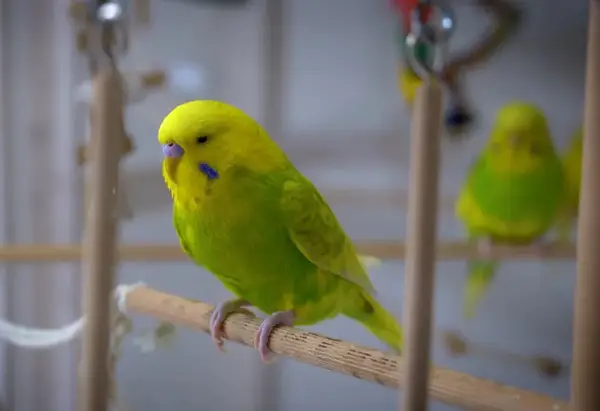
4. Chattering
Soft chatters may signify your budgie is happy and content. Budgies will chatter with other birds, themselves, and their owner.
5. Screaming
Typically, parakeets will scream when they feel threatened or bored. Budgies also make this sound when experiencing night frights, feeling bothered, and showing their authority.
6. Singing
Budgies singing is a sign that everything is okay with them and they are happy. Unlike other sounds, the singing lasts longer.
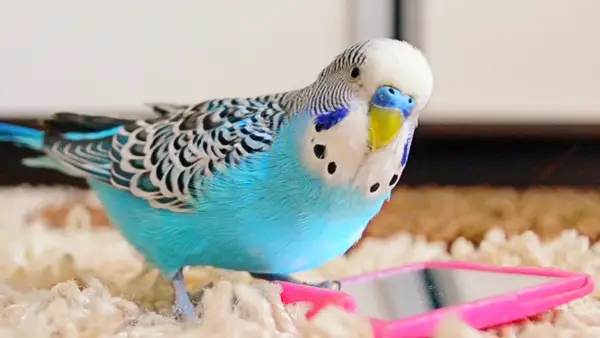
7. Beak grinding
Parakeets often grind their beaks to signal comfort and content, especially before falling asleep.
Tips For Teaching Budgies To Talk
Teaching your parakeets to speak does not need to be complicated once you have bonded well. And here are tips to make the process even easier.
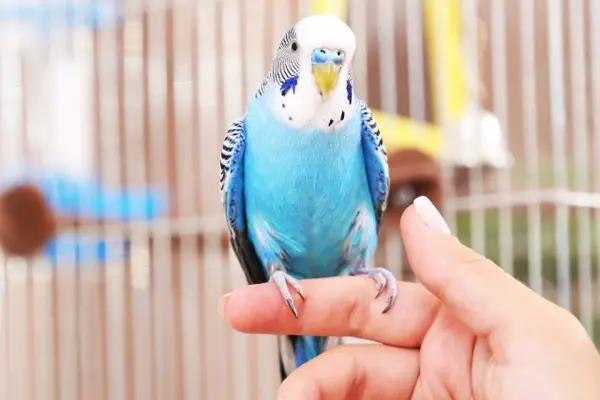
- Always reward your bird with its favorite treat whenever it says the word you are teaching. This will encourage your budgie to learn more.
- Before the training, ensure your budgie is happy and healthy. A sick bird will not be willing to learn.
- Teach your parakeets new words early in the morning when they have a fresh mind, and their brains are more alert. But first, give your bird something to eat.
- Train your budgies to talk like you would with a young child using simple words.
- Don’t punish your parakeets or get mad at them if they cannot say words the way you want them to. Simply be patient with your birds.
- If you have multiple pet birds, teach one at a time to talk.
- Build a routine and stick to it as often as possible to avoid confusing your budgies. If you are teaching your birds every morning, be consistent with that.
What Is The Best Age To Teach Budgies To Talk?
Although there is no specific age, most experts recommend training your pet birds to talk when they are between 3-4 months old. This is because the younger, the better. This way, by 6 months, your budgies will have learned to say several words.
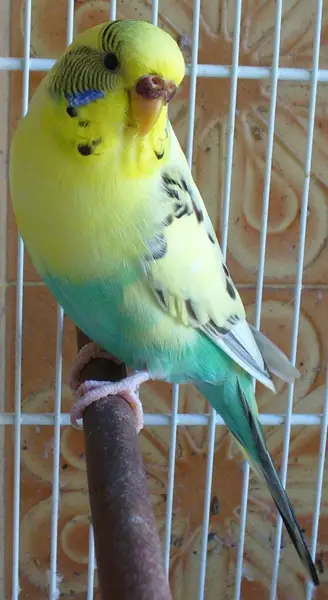
Unlike mature budgies, younger pet birds are more receptive to learning different things. This is because as budgies age, their brain performance also experiences a decline. Therefore, the best age to teach your parakeets to speak is when they are below one year old.
Related: Should You Let Budgies Out Of Their Cage?
FAQs
Now, let’s look at frequently asked questions about whether or not can a parakeet talk and mimic human speech.
You start by calmly saying your bird’s name to him in slow motion and with great enthusiasm. And for the best results, you should repeat their name several times for up to 10 minutes. If your bird says the name correctly, give it its favorite treat.
The most accessible words for budgies to learn are short, clear, and with no or little complexity. These include hello, hey, bye-bye, night-night, howdy, and good morning. But with time, your budgie can learn different phrases.
Yes. However, training mature budgies to speak can be an uphill task, and the process may take longer. That’s why experts recommend teaching your pet birds to talk when they are still young, around 3 months.
Conclusion
Budgie talking is common among male and female species, although male birds are more vocal. However, it can take weeks, two months, or more for your pet birds to learn to speak.
Nothing to worry about, though, because it is not difficult to teach your parakeets to talk if you have a good bond. Besides talking, your budgies can also make various sounds to express their emotions.
